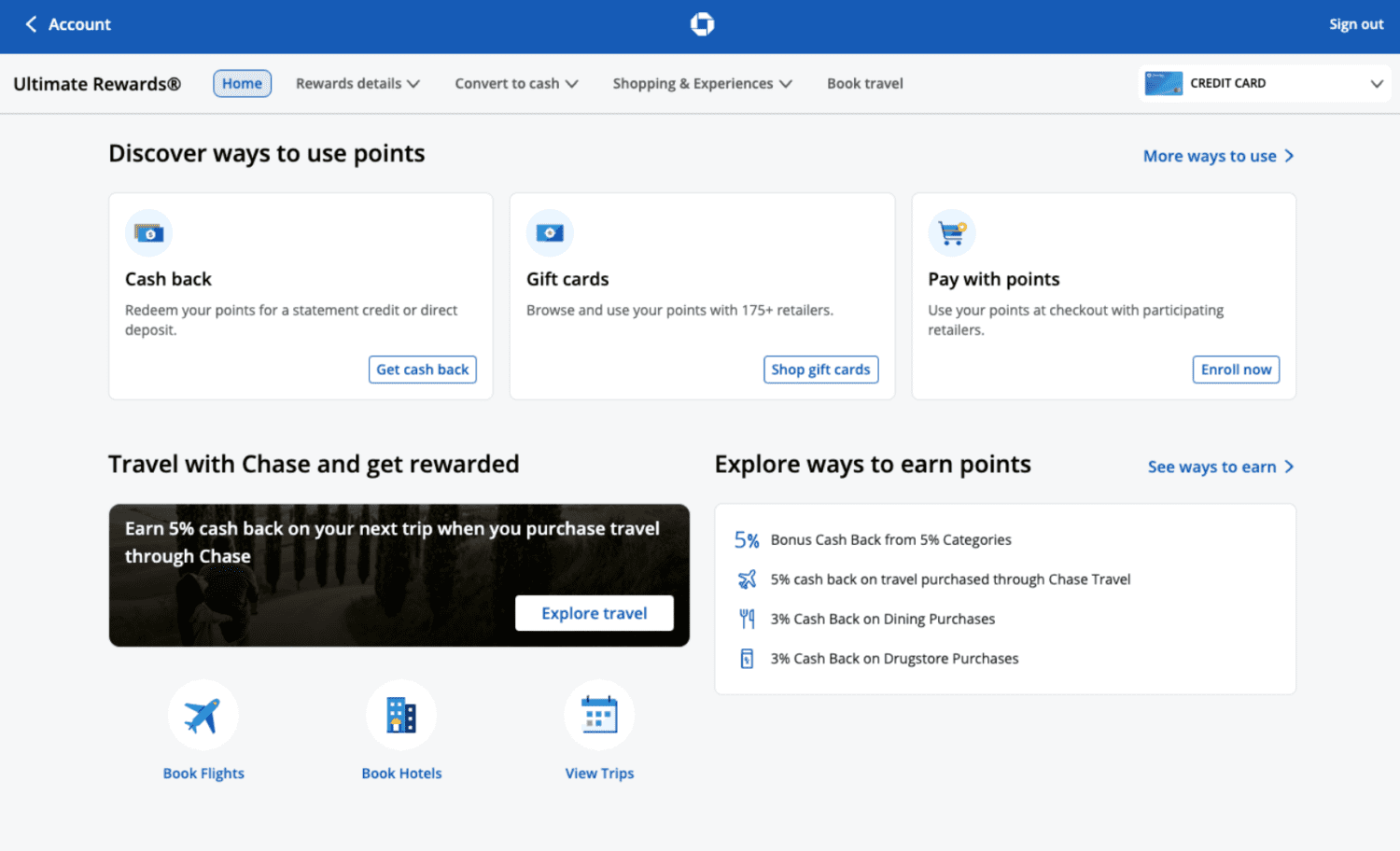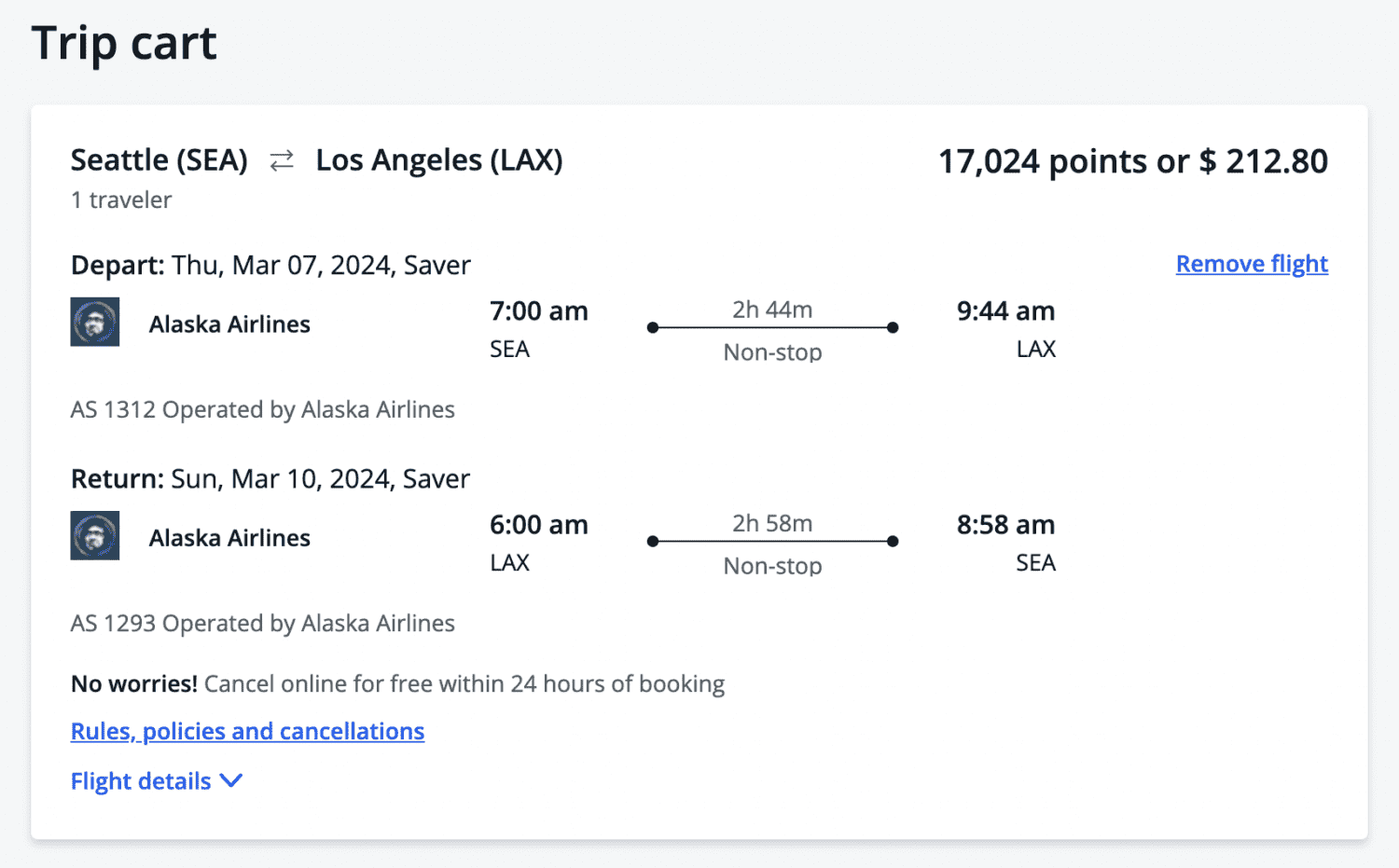Looking to open a new credit card? You may find yourself going back and forth between two different types: Cashback and travel rewards credit cards. Both are incredible financial tools that, if you use them right, can actually save you money.
Depending on your lifestyle and personal goals, one may be a better choice than the other. With cashback cards, you'll get money back on spending you do on the card. With travel rewards cards, you'll earn points on your purchases that you can redeem for free flights and hotels for you and your loved ones to take that much-needed vacation.
Let's make one thing clear: Credit cards are serious business. You should never apply for a credit card if you're already in debt, and never charge more to a credit card than you can afford to pay off immediately. Any points or cash back you might earn from a credit card aren't worth it.
So which type of card should you choose? Read on as we break down the pros and cons of cashback versus travel rewards cards.
Cash Back Credit Cards
Cashback credit cards are an easy way to save money on everyday spending.
With most of these cards, you'll earn a small percentage of money back – either as a direct deposit or statement credit – on eligible purchases. Depending on the card, you might earn cash back on all spending you do on the card or on specific purchases, from gas and groceries to dining and travel.
Here's what to consider before applying for a cashback card.
Benefits of Cashback Cards
Instant Rewards
One of the biggest benefits of a cashback card is how easy it is to earn rewards that you can use almost immediately, on anything you want.
With most cashback cards, you'll earn a percentage back on any eligible purchases you make using that card in a month that you'll be able to redeem at the end of your billing cycle.
Most banks allow you to get your cash back in the form of a statement credit, which you could think of as a nice discount on your credit card bill for that past month. Some banks like Capital One, Chase, and Citi give you even more flexibility, allowing you to redeem your rewards as literal cash back via direct deposit or checks or as gift cards.

Welcome Bonus
One of the big incentives to open a new cashback credit card is often an attractive welcome offer. For example, with the Chase Freedom Flex℠ card you'll get $200 as a direct deposit or statement credit after spending $500 within the first three months with the card.
By simply holding the card and spending as you normally would, you'd likely hit that minimum spending requirement and earn that signup bonus. Compare that to a travel rewards card like the *chase sapphire preferred*, where you might have to spend eight times that amount in the same period of time to earn a bonus.
Spending Categories
Depending on the cashback card that you hold, you could earn double or triple the amount of cash back in the categories you spend the most in.
The Blue Cash Everyday(R) Card from American Express, for example, earns 3% cash back at U.S. supermarkets, 3% cash back on U.S. online retail purchases, and 3% cash back at U.S. gas stations up to $6,000 per year in purchases (then 1%). That makes it a great choice for everyday expenses.
If you are a foodie who dines out on the regular, the cap1_savor could earn you 3% cash back at restaurants, plus 3% back at grocery stores.
There's likely a cashback card on the market that fits your spending habits – and could earn you some sweet rewards on those purchases.

No Annual Fee
Most cashback cards have no annual fee, meaning you don't have to pay to play.
Unlike travel reward credit cards which typically come with annual fees ranging from $95 to nearly $700, you can earn and use the rewards of a cashback card for free.
These are cards that you could keep open for the indeterminate future. Your credit score will thank you!
Read more: 4 Credit Card Myths You Should Stop Believing
Drawbacks of Cashback Cards
Insignificant Savings
Although these cards have many benefits that make them worthwhile to hold, they do have certain limitations.
For many consumers, any savings are appreciated, especially on everyday purchases. However, for some, the small percentage of cash back you get for your spending may be insignificant.
My first credit card was the costco_anywhere. I was spending thousands of dollars on the card every year but only earned a few hundred dollars back. If I'd put those purchases on a travel rewards card instead, I could have earned points and miles to put towards travel – far more valuable for me.

Foreign Transaction Fees
If you are traveling overseas, you will find that cashback cards are a pain to use abroad. Most of these cards charge foreign transaction fees and you may have to call your bank to notify them that you plan on using your card outside of the U.S.
Swiping your cashback while abroad simply doesn't make sense in most cases. The cash back you might earn on those purchases may not be worth it if you're piling on foreign transaction fees.
When it comes to travel, don't expect any useful perks or benefits from cashback credit cards. If you're a frequent flier, you'd likely be better served with a travel rewards card.
Redemption Limitations
The form of cash back that you earn on these cards will vary.
On Chase, Capital One, and Citi cashback cards, you have the flexibility to redeem your cash back via direct deposit or as a statement credit. These banks also allow you to convert your cash back into points to redeem for flights and hotel bookings, but only if you also hold a corresponding travel rewards card.
With American Express cash back cards, there's no path to convert cash back into Membership Reward points. Plus, you're limited to getting your cash back rewards as statement credits and don't have the option to convert your rewards into other forms of payment like you can with other banks.
Top Cashback Credit Cards
Chase Freedom Unlimited
- Welcome bonus: Earn an unlimited cash back match on all purchases during your first year with the card (6% cash back on dining and drugstore purchases, 10% cash back on travel booked through Chase, and 3% cash back on everything else).
- Earn 3% cash back on restaurants, takeout, and eligible delivery services.
- Earn 3% cash back on drugstore purchases.
- Earn 5% cash back on travel booked through the Chase Ultimate Rewards Travel portal.
- Earn 1.5% cash back on all other purchases.
- No annual fee
Learn more about the *freedom unlimited*.
cap1_savor
- Welcome bonus: None
- Earn 3% cash back on dining, entertainment, streaming services, and grocery store purchases.
- Earn 5% cash back on travel booked through the Capital One Travel portal.
- Earn 8% cash back on Capital One Entertainment purchases.
- Earn 1% cash back on all other purchases.
- No annual fee
Learn more about the *cap one savor one*
Citi Custom Cash
-
- Welcome bonus: $200 after spending $1,500 in the first 6 months with the card. Earn 5% cash back on gas station and grocery store purchases (excluding Target and Walmart) up to $12,000 in the first year.
- Earn 5% cash back on top eligible spend category each billing cycle up to $500, 1% on all other purchases thereafter.
- No annual fee
Learn more about the *citi custom cash*.
Travel Rewards Credit Cards
Want to travel without breaking the bank? Travel rewards credit cards are the way.
With travel rewards cards, you'll earn points and miles on your purchases that you can redeem for free (or nearly free) flights and hotels. Plus, these cards come with a bunch of useful travel perks and benefits that can make your trip to the airport actually enjoyable.
Here's what to consider before applying for a travel rewards card.
Benefits of Travel Rewards Cards
Transferable Points and Miles
Travel rewards cards earn flexible points and miles that you can use to book flights or hotels through the bank’s travel portal.
Sometimes, these points are worth even more than if you booked with cash. With a Chase Sapphire Preferred card, I could cover this $213 flight from Seattle (SEA) to Los Angeles (LAX) for just 17,024 points since my points are worth 1.25 cents each when redeemed through the Chase Ultimate Rewards Travel portal.

You can also transfer your points to an airline or hotel partner and make your points go even further.
On my recent trip to Southeast Asia, I transferred points earned from spending on my Citi Premier card to book flights from Seattle to Seoul, South Korea (ICN) for 35,000 Virgin Atlantic points, even fewer than I would have needed booking through the travel portal. All I had to pay was taxes and fees, which amounted to a grand total of $5.60 for that flight.
Whether you are redeeming your points and miles through the bank’s travel portal or by utilizing a transfer partner, you’re getting far better value for your travel rewards than you would with cash back.
Welcome Bonus
Travel rewards cards typically come with big welcome offers that could net you enough points and miles to cover your next vacation.
For example, after years of swiping just my Citi Costco Anywhere cashback card, I opened the *citi premier*. At the time, the welcome offer was for 80,000 points after spending $4,000 in the first three months of card membership (This offer is no longer available).
Transferring 60,000 of those points to one of Citi's airline partners, I was able to book business class flights from Melbourne to Sydney for my partner, my mom, and myself. Those three flights together would typically run about $1,500, but using points from the bonus, I only had to pay the $100 in taxes and fees.
You often have to spend more to hit the welcome offer bonus of travel cards compared to cashback cards, but the points and miles you'll earn can go much further.
Spending Categories
Beyond a big welcome bonus, you'll also earn points on all purchases you put on your travel rewards card – valuable points you can put towards future trips. Similar to cashback cards, you may also be able to pile up even more points and miles in categories where you spend the most.
If you're always on the hunt for new restaurants to try like me, the *amex gold* would earn you 4x the Membership Rewards points when you dine out, plus 4x the points at U.S. supermarkets.

Travel Perks
If you want travel benefits like lounge access or complimentary TSA PreCheck, you won’t find them on a no-annual-fee cashback credit card.
Want to skip those long lines at airport security and keep your shoes on? Travel rewards cards like the *capital one venture card* come with a $100 credit to cover a Global Entry or TSA PreCheck membership – a perk that easily cancels out the $95 annual fee.
Many premium travel credit cards come with complimentary airport lounge access where you can enjoy free food and drinks, charge your electronics, and have a place to relax before your flight. The *venture x* gives you access to Capital One Lounges as well as Plaza Premium and Priority Pass lounges around the world. With the *amex platinum*, you'll be able to get into Amex Centurion Lounges, Delta Sky Clubs, and more. You'll be looking forward to that layover instead of dreading how you are going to spend the next few hours before your next flight.

Travel rewards cards come with a host of other perks, too, like Capital One Venture X's annual $300 travel credit. It works like a discount code when booking flights or hotels through the Capital One Travel portal. Benefits like that can take the sting out of the card’s hefty $395 annual fee.
Plus, you will never pay any foreign transaction fees when swiping your travel rewards card abroad.
Drawbacks of Travel Rewards Cards
Annual Fee
When it comes to the cons of travel rewards cards, annual fees top the list. Ranging from $95 to nearly $700, it might be hard for many cardholders to justify paying the annual fee past the first year of card ownership after earning their welcome bonuses.
But keep in mind that benefits like annual travel or hotel credits or a statement credit for Global Entry or TSA PreCheck can cancel out much of those annual fees – so long as you use them.
Read next: Do the Math: Don't Rule Out Travel Cards With Annual Fees
Steep Learning Curve
The beauty of cashback cards is their simplicity. Travel rewards cards, on the other hand, can sometimes be confusing and overwhelming to use.
Earning points on a travel rewards card is easy, but learning how to redeem them for free flights and hotels is harder. You’ll have to do some research to figure out which transfer partners or redemption options are the best for your travel goals.
Hard to Use Credits
Sometimes having too many perks and benefits is simply too much to handle.
Valuable benefits like the $10 monthly Uber credits you get with the Amex Gold Card or the $50 annual hotel credit you get with the Chase Sapphire Preferred aren’t worth anything if you forget to use them.
Cards like the Amex Platinum Card are often perceived as just expensive coupon books considering the overwhelming amount of credits and benefits available to cardholders – many of which may not even align with their spending or traveling habits.
Top Travel Rewards Cards
Chase Sapphire Preferred
- Welcome bonus: 60,000 points after spending $4,000 in the first 3 months from account opening.
- Earn 5x total points on travel purchased through the Chase Travel Portal, excluding hotel purchases that qualify for the $50 Anniversary Hotel Credit.
- Earn 3x points on dining. 2x points on other travel purchases.
- Earn 1x points on all other purchases
- 14 airline and hotel transfer partners
- Up to $50 annual hotel credit for Chase Ultimate Rewards portal bookings.
- Trip Cancellation/Interruption Insurance, Purchase Protection, and more.
- 10% account anniversary bonus based on the total purchases of the previous year.
- Annual fee: $95
Learn more about the *csp*.
*venture x*
- Welcome bonus: 75,000 Venture Miles after spending $4,000 in the first 3 months with the card, but be sure to see if you can get a 90,000-mile bonus via personal referral links instead!
- Earn 10x miles on Capital One Travel hotel and rental car bookings.
- Earn 5x miles on Capital One Travel flight bookings
- Earn 2x miles on all other purchases.
- 15 airline and hotel transfer partners.
- Access to Capital One and Priority Pass Lounges.
- Up to $300 Annual Travel Credit for Capital One Travel portal bookings.
- Up to $100 Global Entry or TSA PreCheck Credit.
- 10,000 mile anniversary bonus.
- Annual fee: $395
Learn more about the *venture x*.
American Express Platinum Card
- Welcome bonus: 80,000 points after spending $8,000 in the first 6 months from account opening, but see if you're targeted for a massive 150,000-point bonus via CardMatch!
- Earn 5x points on flights booked directly with airlines or American Express Travel up to $500,000.
- Earn 5x points on American Express Travel hotel bookings.
- Earn 1x points on all other eligible purchases.
- Transfer your Membership Reward points to over 21 airline and hotel transfer partners.
- Access to The Centurion Lounge, Delta Sky Club (when flying Delta), Priority Pass Lounges, and more.
- Up to $200 Hotel Credit for bookings through American Express Travel portal (The Hotel Collection requires a minimum two-night stay).
- Up to $200 Airline Fee Credit for qualifying airline incidental fees.
- Up to $189 annual CLEAR Plus membership credit.
- APR: Pay Over Time variable APR of 21.24% – 29.24%
- Annual fee: $695 (see rates & fees)
Learn more about *amex platinum*.
Bottom Line
There is no clear winner when it comes to cashback versus travel rewards credit cards. It's a personal decision based on your spending habits, personal financial goals, and what you find most useful in a credit card.
Whether you want to save a little on your everyday purchases or you aspire to travel more, both types of cards are rewarding in their own way. It's up to you to determine what kind of card fits your lifestyle the best.
